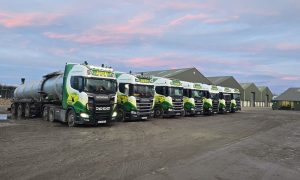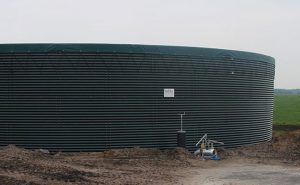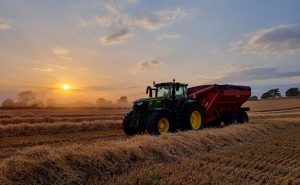Preparing Your Farm For The Winter: Agricultural Contracting Services for the Colder Months
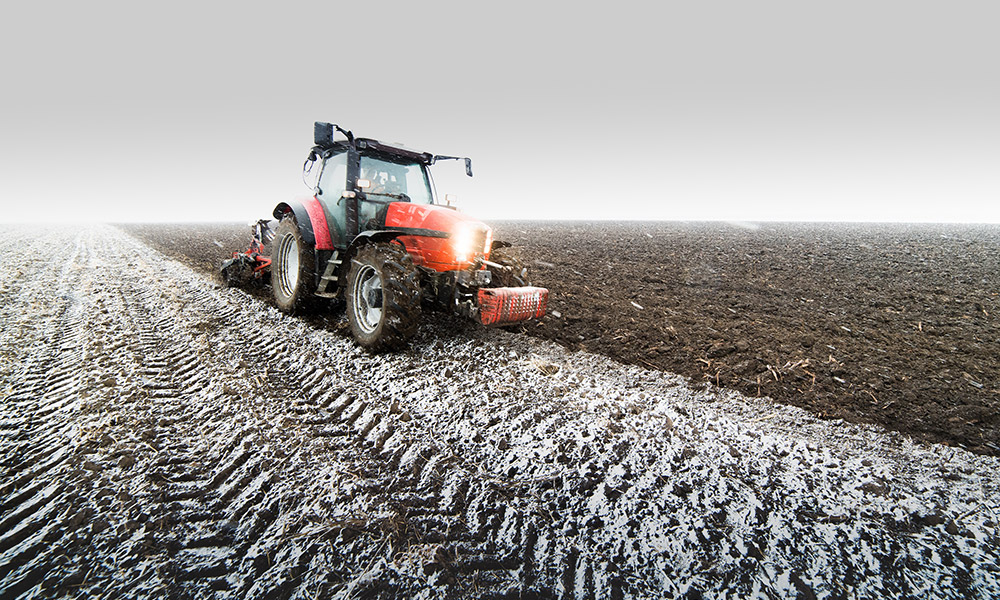
As the frosty winter draws near, it’s vital for farmers to gear up and ensure their operations can withstand the chill.
We understand that winter farming comes with its own set of unique challenges, and we’re here to help you navigate through them. We’ve been out in the field for a number of years, overcoming numerous cold winters with effective techniques and proper farming practices. So we’re here to give you the hows, whats and whys. Here’s what we’ll cover:
- The Impact of Cold Weather on Farming
- Winter Farming Practices
- The Benefits of Contract Farming in Winter
- Snow Ploughing and Gritting: Keeping Pathways Clear
- Plough Hire: An Efficient Farming Solution
Whether you’re seeking advice on winter farm preparation or considering outsourcing to an agricultural contractor, we’ve got you covered.
The Impact of Cold Weather on Farming
Cold weather farming, as the term suggests, is all about braving the elements and safeguarding your farm from the unpredictable British weather. From sunshine to snow, rain to shine, every element has an impact on your farm’s productivity and profits.
Farmers will confront a trio of challenges: diminished daylight, frosty landscapes and plummeting temperatures, all of which can influence productivity and the overall wellbeing of the farm. Crops, deprived of essential sunlight, struggle to grow, potentially leading to severe damage and reduced harvest yields. In fact, around 85% of farmers have reported crops suffering from cold stress, resulting in restricted stem growth and stunted development.
The icy temperatures can wreak havoc on your equipment. When left untouched for extended periods, machinery can seize up due to the freezing temperatures, resulting in maintenance issues and unwanted downtime as the summer months roll around.
Plus, your livestock will require extra care and attention to keep them warm and healthy. Clearly, the work on the farm doesn’t come to a halt when the chilly weather arrives; instead, it necessitates a proactive and strategic approach to ensure a successful winter season.
Preparing For Winter on the Farm
Your checklist will be as unique as your farm, and this is by no means an exhaustive list. However, there’s a few things to check off to ensure proper preparation for the season ahead.
Your Cold Weather Farming Checklist:
- Prepare in advance
- Find proper shelter for livestock
- Make sure water systems for livestock are in order
- Stock up on feed and bedding for animals
- Winterise your barn
- Equipment stored away
- Prepare for floods
- Remove and drain irrigation equipment
- Locate shovels, snow-scoops and ice-scrapers
- Put up a snow fence
Winter Farming Practices
Winter farming isn’t just about surviving the cold; it’s about thriving in the season and making the most of your farm. As the temperatures drop, farmers start shifting gears and adapting their farming practices to ensure success.
Planning ahead
The first step in preparing your farm for winter is to establish a clear plan before the cold weather takes charge. This plan should cover everything from feeding schedules for livestock to equipment maintenance and field preparation.
Assess your farm’s specific needs, taking into account your location and the unique weather challenges you may face.
Crops
November is when ploughing begins, laying the groundwork for the upcoming year’s harvest.
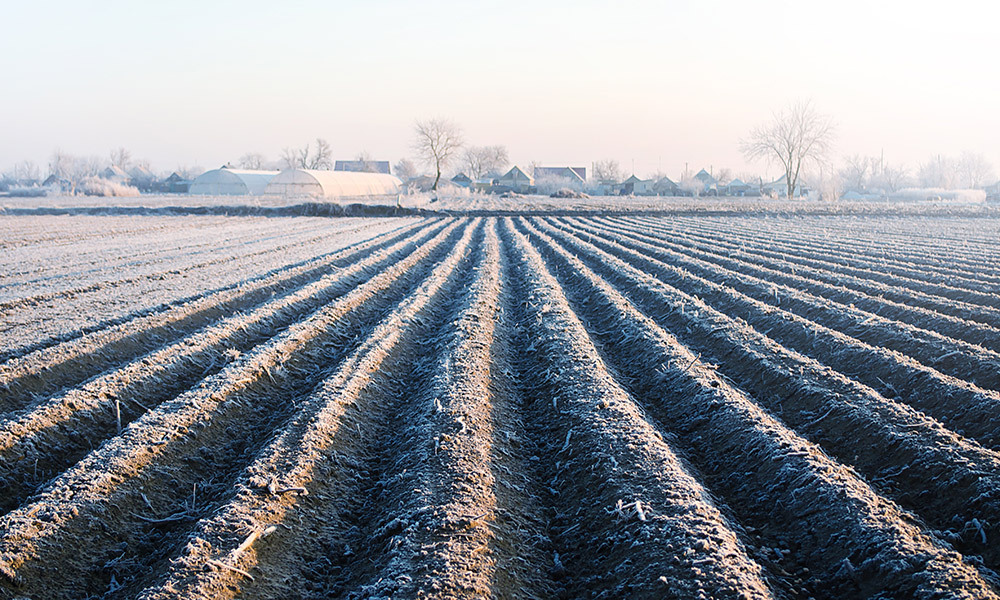
With the approach of Christmas and the inevitable reduction of daylight hours, farmers find themselves working condensed days at a rapid rate to effectively complete their tasks.
Ready to Optimise Your Winter Farming?
Discover the AWSM difference! Utilise our farm contracting services for expert crop management in winter and for year-round success. Don't miss out; click below to get started!
Explore Farm Contracting ServicesAs of September 2023, harvest progress in Great Britain is on track, with harvesting of winter wheat, barley and oats all 100% complete – thanks to the dedication and preparation in place from farmers across the nation.
For arable farmers, January is the time to start spreading slurry in preparation for the upcoming harvest. Luckily, the presence of frost can actually be a benefit, firming up the fields to make them more amenable to essential activities.
As it stands, the Agriculture and Horticulture Development Board (AHDB) confirmed that as of 2022, 85% of Great Britain’s winter wheat crop was in good/excellent condition. Effective farming is still possible with the right practices.
Livestock
Your animals will need a durable shelter once the colder temperatures set in, which means your barn needs to be in top shape.
Ensure your barn’s ventilation system is effective, and inspect the structure for any damage, ensure windows and doors are secure and look out for any holes that need boarding up to prevent the cold air from coming in.
Make sure you have enough space for your livestock to fit comfortably, and ensure your animals have access to bedding, feed and water. In response to diminishing grazing opportunities and the declining quality of grass, farmers must shift their attention to providing extra care to livestock.
Equipment
Ensure you’ve got the equipment you need to help you battle the cold weather. Winter equipment that’ll come in handy include generators for backup power, digging bars to help prepare the soil for planting, alongside the standard tools such as snow shovels and scoops.
In addition, it’s important to prioritise the wellbeing of your equipment that doesn’t get as much use in the winter months. Proper storage is your first line of defence against the winter elements that can damage your vehicles, tools and machinery. However, it’s important to note that storing your equipment away doesn’t mean you should neglect it for the entire season.
Winter is the season to ensure that all farm equipment and vehicles are serviced, with comprehensive inspections and necessary repairs. This means checking the batteries for reliability, examining the oil and antifreeze to prevent any cold-weather complications, verifying fuel levels to avoid unexpected shutdowns, and assessing tyre conditions for optimal traction.
By taking these steps, you’ll be well-prepared to face the challenges of winter and ensure that your equipment performs reliably when you need it most. This proactive approach can save you time, money, and headaches down the road.
Flood-aware farming
As we head into winter it’s important to make sure that your farm is flood-aware to help minimise any damage. Protecting your farm from flooding is a multi-step process, and greatly depends on how susceptible your farm is.
Here are some key tips: First, identify fields at higher elevations where livestock can be moved to safety and establish a plan for relocating machinery and tools to prevent water damage.
Additionally, create a contingency plan with suppliers to ensure business continuity, reducing the risk of income loss. And, of course, ensure your insurance coverage is in place, just in case it’s needed. Remember, it’s better to be safe than sorry!
Investing time and effort in these preparations will lay the foundation for a successful winter season and ensure your farm emerges from the cold months in prime condition. For more insights on staying prepared, explore another one of our blogs, filled with more tips and tricks for effective winter farming.
The Role of Contract Farming in Winter
Contract farming in winter offers numerous advantages for farmers. It provides access to specialised equipment and expertise, helping ensure efficient farm management in adverse conditions.
Key benefits include time and cost savings, reduced downtime, and peace of mind knowing that experts are overseeing crucial tasks. Here’s a few ways it can help:
Snow Ploughing and Gritting Services
Snow ploughing and gritting are essential for maintaining clear pathways and ensuring safety during winter.
Contract farming services, like AWSM, excel in snow management, offering efficient snow ploughing to keep access roads, driveways, and pathways clear. Gritting in winter is vital for preventing icy conditions, reducing the risk of accidents and injuries.
Plough Hire for Cold Weather Farming
Ploughing is a fundamental winter farming practice, and contract farming services provide convenient machinery hire solutions to get the job done. This enables farmers to access the necessary equipment without the hassle of ownership.
Renting ploughing equipment from experts like AWSM ensures that fields are prepared efficiently for the upcoming planting season.
Need an extra pair of hands?
AWSM Farming is your one-stop solution for comprehensive farm contracting services. From winter storage options to efficient snow gritting and ploughing, we've got it all covered. Elevate your farming experience now!
Speak To Our TeamEffective Winter Storage Solutions
In the challenging landscape of winter farming, the importance of efficient storage solutions cannot be overstated. Our commitment to comprehensive winter farming support extends to offering a range of storage solutions tailored to your needs.
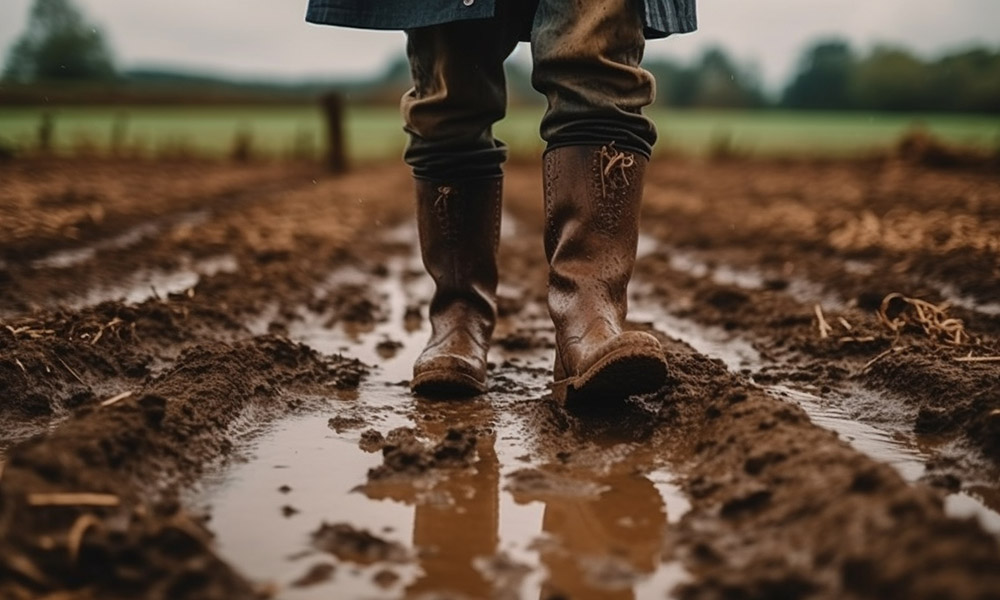
From durable and reliable slurry tanks, including both mesh and steel options, to versatile slurry lagoons, we’ve got you covered. These storage facilities are designed with a focus on preserving the integrity of slurry, or other stored materials, ensuring they remain in optimal condition despite the adverse winter conditions.
In winter, when the elements can be harsh and unpredictable, it’s reassuring to know that your essential farm resources are protected. Contract farming specialists provide the infrastructure and expertise required to maintain the quality of your slurry with effective storage solutions.
Livestock Care and Management
As temperatures plummet, farmers must address winter-specific concerns, including freezing water troughs, frostbite prevention, and increased feeding for sheltered livestock. Preventing frostbite involves keeping animals dry, especially in rotational shelter setups, to mitigate fatalities in harsh conditions.
With livestock housed and no grazing access, ample food provision is essential. Preparing for winter on the farm is key to maintaining seamless operations.
As expert farm contractors, our experienced team excels in winter livestock management. Our extensive knowledge and machinery enable us to deliver top-tier farming services year-round, particularly during the winter months when expert livestock care and sheltering are crucial components of our holistic agricultural solutions.
Contract Farming for the Day-to-Day
The biting cold and unpredictable weather patterns can significantly affect farming operations. Beyond the specific winter services mentioned, contract farming services also assist with a wide range of day-to-day operations.
These may include animal care, crop management, and equipment maintenance. With experts overseeing these tasks, farmers can focus on strategic planning and enjoy a smoother and more productive winter season. It’s a win-win!
In a nutshell…
Contract farming is a valuable ally in the battle against winter’s challenges. Farmers can tap into the expertise and resources of contract farming services to optimise their winter operations.
From snow management to equipment hire, contract farming is a strategic choice for ensuring a successful and productive winter season.
How is farming affected by cold weather?
Cold weather impacts farming by reducing crop growth, requiring increased livestock care, and posing challenges to equipment maintenance.
What do farmers do in winter?
In winter, farmers shift their focus to animal care, equipment maintenance and field preparations for the year ahead. The work doesn’t stop because the weather is cold!
How to prepare my farm for winter?
Preparation involves creating a winter plan, protecting livestock, optimising crop choices, and ensuring equipment readiness.
What's involved in farm contracting services in winter?
Contract farming services offer snow management, gritting, resource storage, equipment rental, and expertise for efficient winter farming – helping farms thrive in the colder months.

